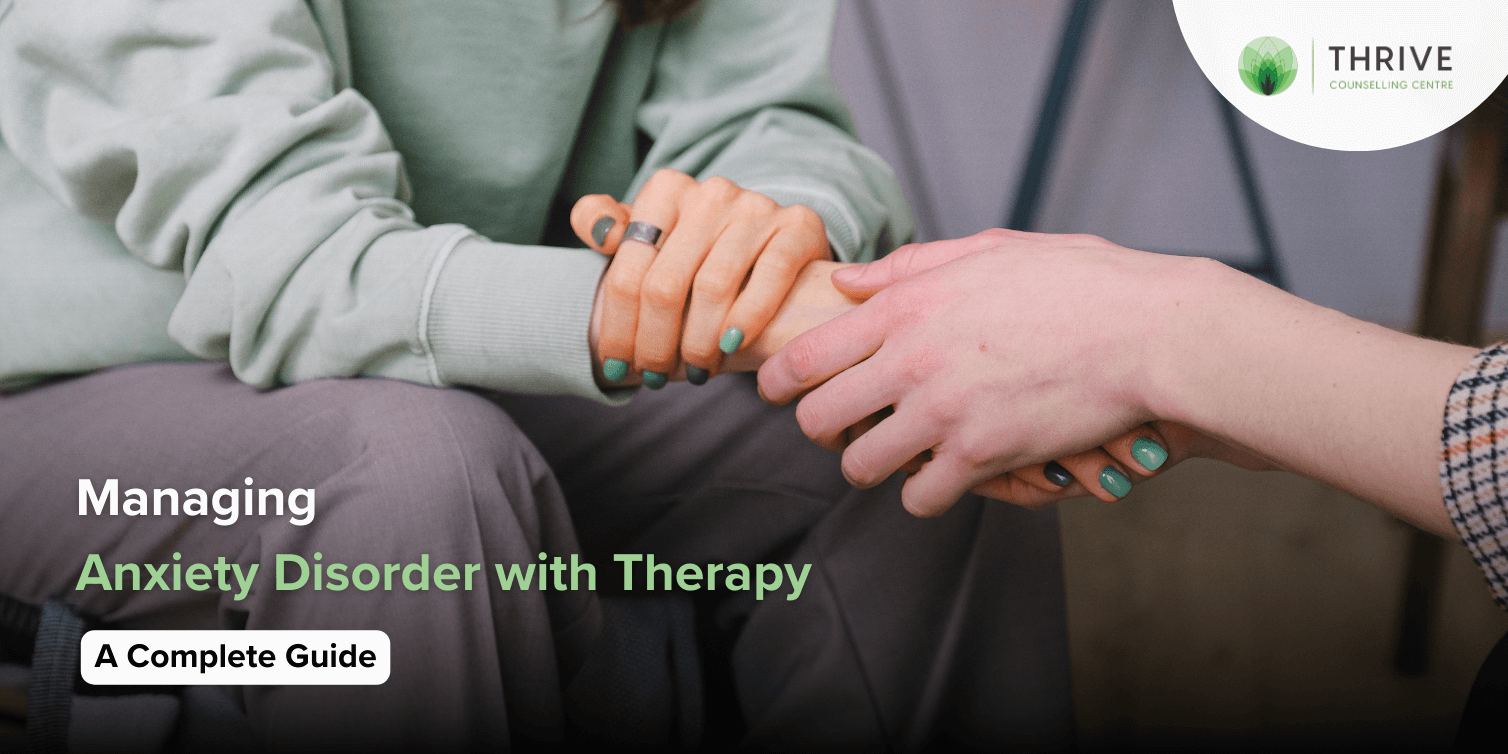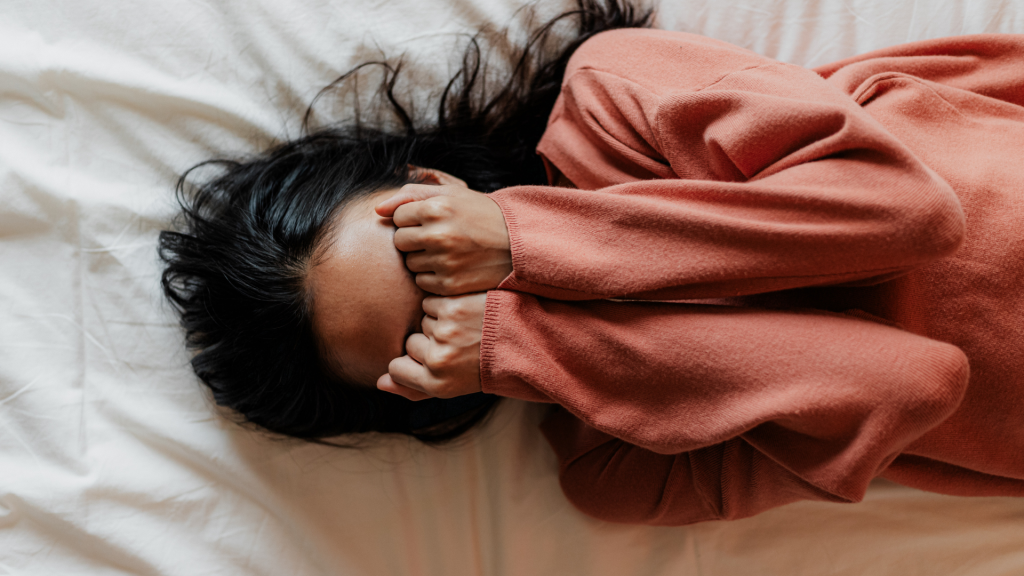Start your journey with counselling for anxiety disorder supported by professionals
Start your journey with counselling for anxiety disorder supported by professionals
Blog Article
Exploring Various Methods in Counselling for Anxiety Condition for Long Lasting Adjustment
When dealing with anxiousness disorders, it's important to check out a variety of therapy strategies. Each technique provides unique insights and devices to help you handle your signs effectively. You could find that incorporating techniques can generate the very best results. Understanding the subtleties of these strategies is vital to cultivating long lasting change. What if the ideal combination could release a brand-new level of emotional wellness for you?
Recognizing Anxiety Conditions: A Quick Introduction
Anxiety disorders, which impact numerous people worldwide, can substantially affect every day life. You could experience frustrating sensations of anxiety or worry that appear unmanageable. These feelings can bring about physical signs and symptoms like a racing heart, sweating, and even lightheadedness. Typical kinds of stress and anxiety disorders include generalised stress and anxiety disorder, panic disorder, and social anxiety condition. Each has special indications, but they all share a propensity to disrupt your routine and relationships.Understanding the origin of your anxiousness is vital. It might come from genes, mind chemistry, or life experiences. Identifying your triggers can aid you handle your actions much better. It is essential to bear in mind that you're not alone in this battle. Lots of people encounter similar difficulties, and seeking assistance is a solid action toward sensation better. By discovering stress and anxiety conditions, you're already on the course to understanding and managing your condition better.
Cognitive-Behavioral Therapy: Testing Unfavorable Thought Patterns

Recognizing Adverse Thought Triggers
Identifying the specific triggers behind your adverse thoughts can be essential in managing stress and anxiety when you run into minutes of distress. Start by focusing on situations that prompt sensations of concern or concern. Is it a crowded area, an approaching deadline, or a discussion with particular individuals? Take down these instances in a journal. This will certainly aid you identify patterns in your reasoning. Likewise, notification physical sensations that accompany your negative ideas, like a racing heart or rigidity in your breast. By determining these triggers, you obtain insight into what's fueling your anxiety. Understanding these connections is the initial step in testing those thoughts and inevitably restoring control over your emotional feedbacks.

Replacing Ideas With Positives
Testing unfavorable thought patterns is a vital step in transforming your mindset and reducing anxiety. You may usually discover yourself trapped in cycles of self-doubt or tragic reasoning. Rather than allowing these thoughts dictate your sensations, technique replacing them with favorable affirmations or realistic alternatives. When you think, "I can't manage this," change it to, "I can manage challenges one step at a time." This easy change can substantially impact your emotional state. Consistently recognizing and countering these unfavorable ideas aids create a healthier internal discussion. Remember, it takes time and effort, yet constantly practicing this technique can lead to long-term adjustment, equipping you to deal with stress and anxiety with renewed confidence and durability
Structure Coping Methods Together
Changing negative thoughts is just the start of taking care of anxiousness effectively. To develop enduring adjustment, you need to develop coping approaches that empower you. Cognitive-Behavioral Therapy (CBT) aids you identify and challenge those unhelpful idea patterns. With each other, you and your counselor can check out exactly how these ideas impact your sensations and behaviors.Start by creating functional strategies, like journaling or mindfulness workouts, that allow you to challenge anxiousness head-on. When you encounter your anxieties slowly, you'll discover to react differently.

Mindfulness and Acceptance-Based Approaches: Growing Present-Moment Understanding
As you navigate the complexities of anxiousness, including mindfulness and acceptance-based techniques can significantly enhance your capacity to grow present-moment understanding. By concentrating on the right here and now, you'll locate that you can observe your ideas and sensations without judgment. This method aids you acknowledge your anxiety without really feeling overwhelmed by it.Engaging in mindfulness workouts, such as deep breathing, body scans, or led meditations, enables you to ground yourself in your present experience. Acceptance-based strategies encourage you to welcome your feelings rather than battle versus them. When you approve your sensations, they lose their power over you.Incorporating these practices into your day-to-day routine can change how you reply to anxiety. You'll develop durability and learn to navigate difficult circumstances with greater ease. Inevitably, growing present-moment awareness lays the structure for long lasting adjustment, encouraging you to lead a much more satisfying life.
Direct Exposure Therapy: Challenging Concerns Slowly
Exposure treatment aids you challenge your anxieties in a gradual means, making it less overwhelming. You'll find out strategies to face anxiety-provoking circumstances detailed, while also building coping methods to handle your reactions. This approach equips you to take control and decrease anxiousness in time.
Steady Direct Exposure Techniques
When encountering anxiousness, gradually challenging your fears can be a powerful means to reclaim control. This method, called steady direct exposure, entails slowly exposing yourself to the circumstances or things that cause your anxiousness. Beginning with less intimidating circumstances and progressively function your means as much as more difficult ones. If you're terrified of public talking, you could start by talking in front of a mirror, then progress to sharing ideas with a close friend, and eventually resolve a little team. Each step assists desensitize you to the anxiety, building your self-confidence in time. Keep in mind, it's vital to pace yourself and celebrate tiny success as you relocate through this process, strengthening your capability to manage anxiety successfully.
Building Coping Methods
Structure effective coping methods is important for managing anxiety, specifically as you challenge your worries slowly. One powerful method is direct exposure therapy, where you begin by encountering your worries in a controlled fashion. Begin with much less intimidating circumstances and slowly function your means up to more tough situations. This gradual direct exposure assists desensitize you to anxiousness activates, making them less overwhelming.Incorporate leisure strategies, such as deep breathing or mindfulness, to calm your mind during direct exposure. Track your progress, commemorating tiny triumphes in the process to boost your confidence. Bear in mind, it's okay to take your time; the goal isn't excellence but consistent enhancement. By constructing these approaches, you'll empower on your own to browse anxiety and welcome life much more totally.
Psychodynamic Treatment: Revealing Root Reasons of Anxiety
Psychodynamic treatment checks out the subconscious mind, disclosing the source of your stress and anxiety - Counseling services for anxiety. By analyzing your thoughts, sensations, and past experiences, this strategy assists you uncover underlying problems and unsolved problems that might add to your existing stress and anxiety. You'll deal with a specialist to explore youth experiences, partnerships, and psychological patterns that form your reactions today.As you acquire insight right into these much deeper layers of your subconscious, you'll start to acknowledge exactly how past occasions affect your present behavior. This understanding can bring about catharsis, enabling you to refine feelings you could have suppressed.Through the restorative partnership, you can additionally recognize defense mechanisms that might have established with time, supplying a more clear path to change. Inevitably, psychodynamic therapy outfits you with the devices to address your anxiety at its core, promoting lasting transformation in your emotional well-being
Alternative and integrative Techniques: Incorporating Methods for Greater Efficiency
Integrating different therapeutic techniques can boost your trip toward managing anxiousness better. By combining aspects from cognitive-behavioral therapy, mindfulness practices, and holistic techniques, you can produce an individualized method that addresses your one-of-a-kind requirements. You could make use of cognitive-behavioral methods to test negative idea patterns while including mindfulness workouts to ground yourself in the existing moment.Additionally, discovering alternative practices such as yoga or reflection can advertise relaxation and decrease stress and anxiety signs. This mix permits you to develop better self-awareness and resilience.Experimenting with these varied methods can assist you discover what reverberates most with you. Keep in mind, it's about discovering a synergy that works, instead of adhering to a single technique. This integrative method not just uses prompt relief but additionally promotes lasting skills for managing stress and anxiety, equipping you to recover control over your life.
The Duty of Assistance Equipments: Building Durability Via Link
While it may appear that handling stress and anxiety is a solitary trip, having a solid support group can play an essential duty in your strength. Surrounding on your own with empathetic close friends, family, or support system produces a risk-free area where you can openly share your experiences and feelings. When you get in touch with others, you advise on your own that you're not alone in this struggle.These connections offer motivation and can give useful coping approaches that have worked for others. It's also a possibility to gain point of view; close friends can assist you more info see scenarios differently, reducing feelings of isolation.Moreover, psychological support fosters a feeling of belonging, which can considerably minimize stress and anxiety symptoms. By leaning on your support system, you can construct durability and tackle challenges better. Keep in mind, reaching out for help suggests stamina, and it can make all the difference in your trip towards taking care of anxiety.
Regularly Asked Questions
What Are the Typical Signs And Symptoms of Anxiety Problems?
You could experience restlessness, fatigue, trouble focusing, impatience, muscle mass stress, and rest disruptions. Physical signs can include fast heart beat, sweating, and shivering. Acknowledging these signs early can assist you seek ideal support and therapy.

The Length Of Time Does Therapy Generally Last for Stress And Anxiety Disorders?
Therapy for anxiety disorders commonly lasts anywhere from a few weeks to several months. It truly relies on your individual needs, progress, and the techniques your specialist makes use of to assist you manage your anxiousness properly.
Can Drug Be Made Use Of Together With Therapy for Anxiousness?
Yes, drug can most definitely be made use of together with treatment for stress and anxiety. Integrating both strategies usually improves therapy effectiveness, assisting you manage signs and symptoms while discovering underlying issues via therapy. Constantly consult your health care provider for tailored recommendations.
Are There Self-Help Techniques for Managing Anxiety?
Yes, there are a number of self-help techniques for taking care of stress and anxiety. You can exercise mindfulness, involve in routine workout, maintain a well balanced diet regimen, establish a regular, and utilize deep breathing techniques to help in reducing anxiousness signs and symptoms efficiently.
Exactly how Do I Know if I Required Professional Assistance for Anxiousness?
You ought to consider seeking expert help for stress and anxiety if it disrupts life, causes significant distress, or if self-help strategies aren't functioning. Trust fund your impulses; connecting can bring about better coping abilities and support. Common kinds of stress and anxiety disorders consist of generalised anxiety disorder, panic condition, and social stress and anxiety problem. When you run into minutes of distress, recognizing the particular triggers behind your adverse ideas can be important in handling anxiety. Changing negative thoughts is just the start of taking care of anxiety effectively. By analyzing your ideas, sensations, and previous experiences, this technique aids you reveal underlying problems and unsettled concerns that might add to your present anxiousness. It's additionally an opportunity to obtain point of view; close friends can help you see situations differently, decreasing feelings of isolation (Counseling services for anxiety).Moreover, psychological support cultivates a sense of belonging, which can considerably ease stress and anxiety symptoms
Report this page